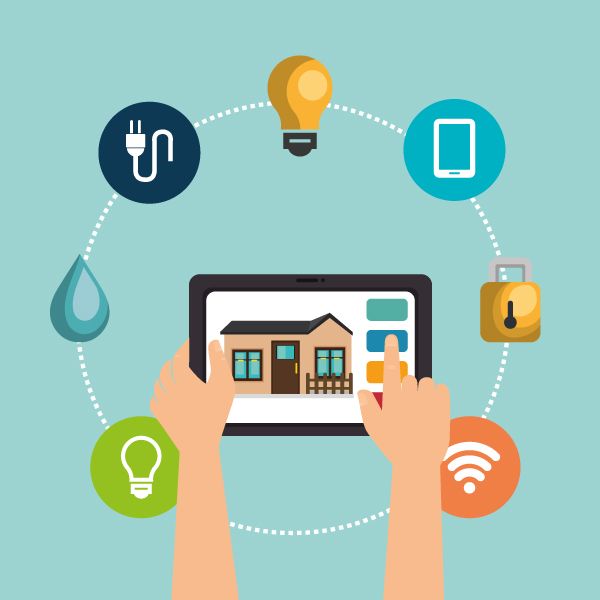It is clear that the Internet has been the greatest technological advance in history in recent decades. And with the IoT (Internet of Things) its applications to our daily lives have multiplied like never before. One such development is smart homes. In this sense, the Smart Home or the home automation systems are starting to resonate with us and will be one of the key players in the 2020 property market.
What is a smart home?
It is a home that has a series of systems that automate and allow remote control of the different installations and appliances present in a conventional home.
From the outside, these types of homes look like any other, but when we enter them and are able to control practically everything from our mobile phones, we are transported to a future that is already very much in the present.

Advantages of smart homes
This type of housing has many advantages, but among them are the following:
Energy saving
It allows a more intelligent and efficient use of energy. No more leaving the light on or turning the heating on at times that only represent a loss. In addition, the systems themselves have memory and adapt to the characteristics of the user and their consumption patterns and the outdoors, so efficiency and energy savings will be increasingly greater. Saving energy means a reduction in energy bills, which is not a bad thing, given the constant upward trend in both electricity and gas prices.
Security
In this sense, we are not only talking about being able to control an alarm or surveillance system remotely. The security provided by these systems is also related to the prompt response to an incursion, breakdown, fire... and the receipt of immediate warnings on our mobile phone.
Generally, to have a home fully domotised, a major building work and investment is required.
Other benefits
- Control of household appliances.
- Remote control of awnings or blinds to adapt to natural light.
- Alert of appliances or electrical appliances on.
- Fire, flood and gas system.
- Medical alarm.
Drawbacks of smart homes
Just as it has its advantages, the Smart Home world also has a number of disadvantages.
Although there are many wireless systems available, it usually requires a lot of building work and investment to have a fully home automation system.
All the functionalities deployed and knowledge of the user are mainly due to the constant collection of data, consumption habits, location, searches, interests, hobbies... which greatly restrict the user's privacy, even when you are in your own home. Big Data has an exact profile of our interests, and that is good for some things, but it is a toll to always take into account.
We often have problems with connectivity or connection speed if many inhabitants are connected at the same time or if we are far away from the router. Home automation systems require large Internet resources and full connectivity throughout the house.
* * *
Related reading:
https://www.monapart.com/es/magazine/hogar/domotica-basica-una-casa-bonita-conectada-y-eficiente
https://www.monapart.com/es/magazine/hogar/autoconsumo-electrico-en-casa
With the IoT (Internet of Things), its applications in our daily lives have taken on a new dimension. Welcome to your connected, efficient, secure and... private home?


